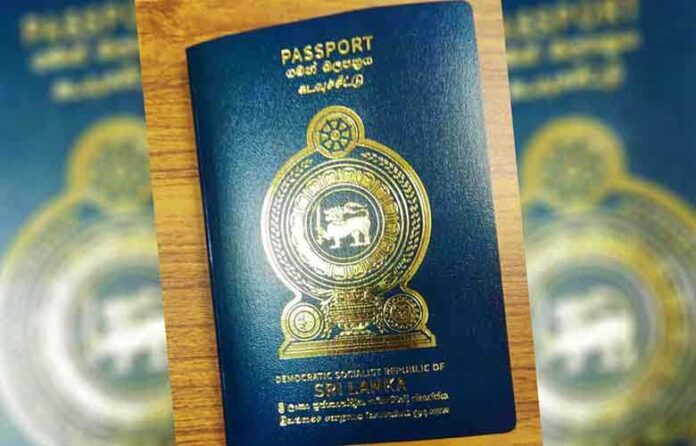Sri Lanka’s National Procurement Commission (NPC) is investigating allegations of irregularities in the previous government’s tender process for procuring five million electronic passports (e-passports) for the Department of Immigration and Emigration (DIE).
The investigation, announced by the Attorney General’s (AG) office, is linked to a petition by Epic Lanka Private Limited, challenging the decision to award contracts to foreign companies for 750,000 regular and 5 million electronic passports.
Additional Solicitor General Sumathi Dharmawardena informed the Court of Appeal that the NPC would submit its observations within a week, requesting an update date for the case. President’s Counsel K. Kanageeswaran, representing some defendants, urged the court to reconsider an injunction against passport procurement. The case is now set for January 23, 2025.
The initial tender aimed to outsource the printing of five million e-passports over ten years using a Public-Private Partnership (PPP) model. However, this was canceled following a ministerial proposal arguing the sufficiency of existing DIE infrastructure. A new tender, focusing solely on purchasing passport booklets for DIE’s in-house printing, resulted in Thales and Just in Time Technologies (JIT) being awarded the contract.
Despite the revised procurement, the DIE mandated online-only applications, reducing daily applications from 3,000 to 800, causing public backlash and significant revenue losses. While this approach aimed to manage limited stocks of machine-readable passports (MRPs) until the e-passport rollout in 2025, it sparked widespread dissatisfaction.
Concerns over compliance have emerged as Thales and JIT have reportedly claimed the current DIE infrastructure is inadequate for printing e-passports. They proposed a new setup, including printing services at a fee per passport, which deviates from the original tender. This proposal necessitates a Rs. 1.5 billion investment in new infrastructure and bypasses tender requirements, raising ethical questions about government procurement policies.
Further controversy surrounds the lack of adherence to tender conditions. The contract required bidders to ensure biometric passport production using existing DIE infrastructure while adhering to International Civil Aviation Organization (ICAO) standards. Thales and JIT, however, demand additional purchases, including a Public Key Infrastructure (PKI) system, without open tendering. The Ministry of Public Security recently sought Cabinet approval for these purchases, exacerbating concerns about transparency and cost overruns.
Sri Lanka’s transition to e-passports, long delayed, promises enhanced security with personal details embedded in electronic chips. However, the associated costs, procedural violations, and inadequate planning are drawing parallels to a controversial visa outsourcing deal that inflated fees for inbound tourists. Critics argue that these lapses undermine public trust and increase financial burdens.
The immediate need to address public dissatisfaction and procurement irregularities looms large. As the NPC investigation unfolds, the focus remains on whether Sri Lanka can balance modernizing its passport system with ensuring fiscal responsibility and adherence to procurement guidelines.
